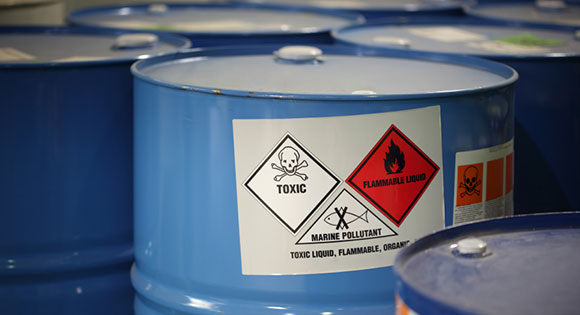West Virginia Chemical Exposure Lawyer – Get the Compensation You Deserve
Have you or a loved one suffered serious health issues from chemical exposure at work or in your environment? Toxic chemicals can cause cancer, lung disease, and neurological disorders—and companies must be held accountable.
At Segal & Amos, PLLC, we fight for the rights of those exposed to hazardous substances, helping them secure maximum compensation for medical expenses, lost wages, and suffering.
Toxic Chemicals Linked to Serious Illness
West Virginia industries use and release dangerous chemicals known to cause life-threatening diseases, including:
- Benzene – Linked to leukemia and blood disorders
- Vinyl chloride – Associated with liver cancer and nerve damage
- Pesticides – Can cause neurological diseases and birth defects
- Roundup® (Glyphosate) – Linked to non-Hodgkin lymphoma
- Paraquat – Strongly linked to Parkinson’s disease
- Silica Dust – Causes lung disease, cancer, and silicosis
If you’ve been exposed to any of these toxic substances, you may be entitled to substantial financial compensation.
Roundup® and Paraquat Lawsuits – Hold Manufacturers Accountable
Roundup® (Glyphosate) Exposure
- Used in farms, landscaping, and home gardens
- Linked to non-Hodgkin lymphoma and other cancers
- Lawsuits are ongoing against Monsanto and Bayer
Paraquat Exposure
- A highly toxic herbicide requiring certified use
- Linked to Parkinson’s disease and poisoning-related deaths
- Companies failed to warn workers about the dangers
If you or a loved one was exposed to Roundup® or Paraquat and developed cancer or neurological disease, you may qualify for compensation. Act now—deadlines apply!
Silica Exposure – A Hidden Workplace Danger
Silica dust is common in construction, mining, and manufacturing. When inhaled, it leads to:
- Silicosis – A progressive, incurable lung disease
- Lung cancer – Increased risk from prolonged exposure
- Chronic lung disease – Scarring that reduces lung function
Nearly 2 million U.S. workers are at risk. If you have a lung condition caused by workplace exposure, you may have a case.
Why Choose Segal & Amos, PLLC?
Millions Recovered for Chemical Exposure Victims
No Fees Unless We Win – You Don’t Pay a Dime Upfront
Experienced West Virginia Attorneys Fighting for You
Free Case Evaluation – Call or Fill Out Our Online Form
Take Action – Get a Free Legal Consultation Today
Time is limited. Contact Segal & Amos, PLLC today and let us help you fight for the justice and compensation you deserve.

